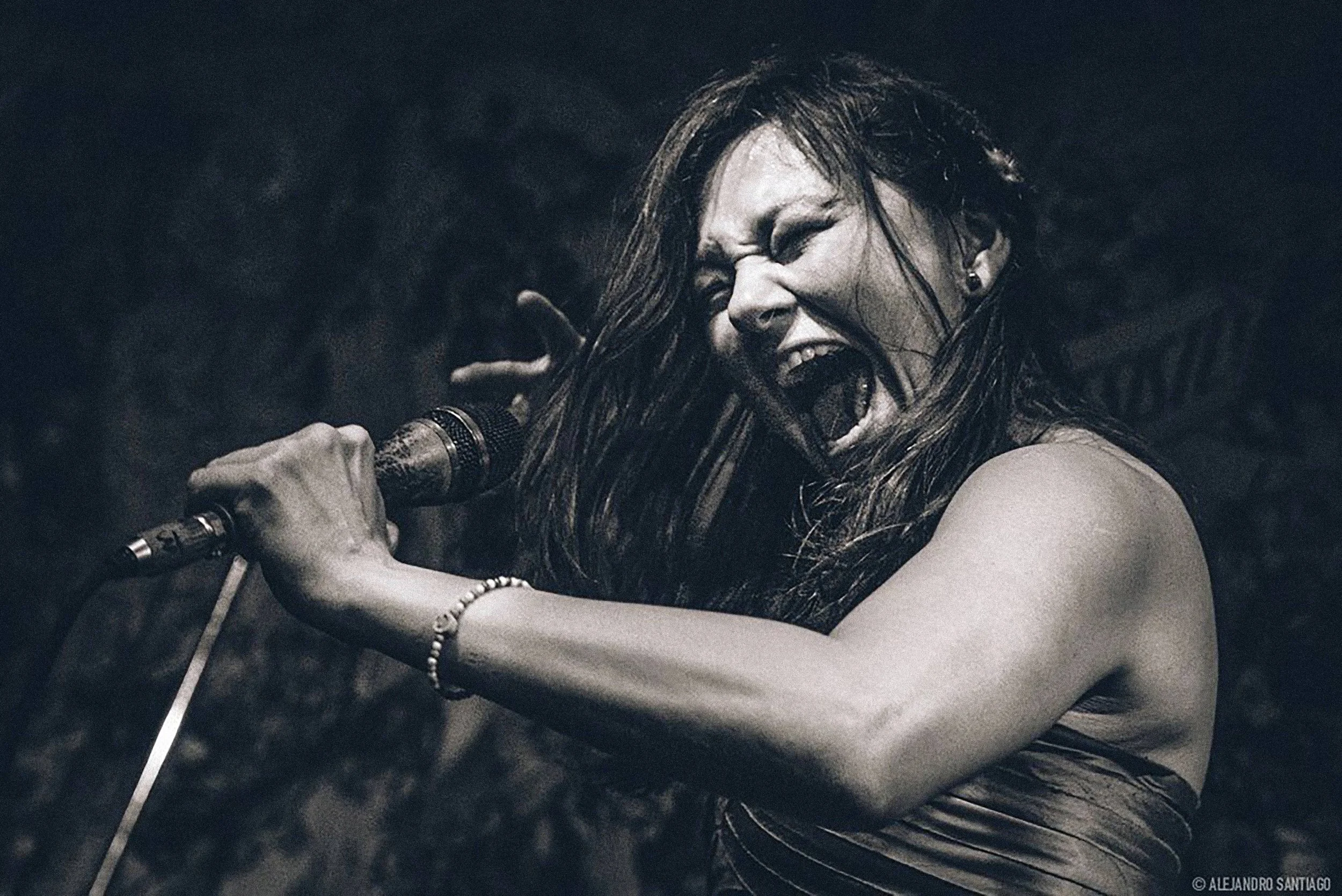Echoes of the North: Tanya Tagaq Live in Lenapehoking \\ Written By Anaïs Chávez
When Tanya Tagaq sings she brings the Arctic with her. On January 14th, at Joe’s Pub in The Public Theater, she brought it to New York City.
Inuit throat singing is traditionally done between two women, passing guttural noises back and forth, echoing a harmony until one of them loses the rhythm or laughs(1). Tanya’s music combines these traditional techniques with experimental instrumentation, creating something entirely unique. Her live performances are even more remarkable.
I had heard of the concert last minute, invited by a friend, and didn’t realize what I was in for. I’d known of Tanya for a couple of years and was familiar with some of her work, particularly her 2016 album Retribution and her 2004 collaboration with Bjork on their song Ancestors. I expected a typical performance, where I’d recognize a few melodies. Instead, I feel as though I witnessed something like a sacred ceremony.
The show was purely improvisational and without pause. Tanya was accompanied by a two-piece backing band but sang without a partner; she carried the music and led the sound. While a game of throat singing can last a couple of minutes, Tanya performed for a continuous hour, caught in a rhythm with herself and never falling out of the force of her current. Her voice waxed and waned, and the song never ended but continually metamorphosed and transformed.
At times the music sounded like the soundtrack to a surrealist horror film, at others like animals calling to each other. Under colorful lights, she writhed like a snake, reached up and laughed like a child, and spoke directly to the audience in Inuktitut, a language that most people in the room, if not all, didn’t understand. There was a certain magic in not knowing what she was saying, who she was calling upon, or what she was describing, but knowing that she was crying out with uninhibited passion and sincerity. A dialogue existed between her and another invisible entity, and the audience could only bask in the peripheral energy that radiated from the exchange.
Tanya was the nucleus of the night, but her aura spread to every wall of the room, and everything became part of the performance. The rumbling of the train below, felt under my feet and up through my body, the yelp of someone behind me who knocked over a glass, the sporadic percussion of the ice in cocktail shakers at the bar in the back of the venue. These vibrations blended with Tanya’s voice and made the music four-dimensional, all-encompassing. The performance felt ancient and ageless, unsettling and hopeful, all at once. Watching her swing from pain to euphoria, losing hope and finding it again, I admire her for surviving through it all. It was impossible for Tanya not to hold the entire audience in a trance with her. She was beyond deserving of the standing ovation she received.
The feeling Tanya Tagaq created on this night can never be exactly replicated or relived—photos and videos were not allowed, which only heightened my awareness of its ephemerality in the moment and deepened my appreciation. A video would never do her full justice anyway, just as a phone camera can’t properly capture a sunset. You just have to be there.
The concert had begun at 10 PM, so by the time I left, the cold winter night was fully upon us.
As I stepped outside, I was greeted by harsh winds. I breathed in the cold and felt the winter in my hair. Despite not being dressed appropriately for extended time outside in this weather, I enjoyed my walk to the train.
Tanya, wearing mukluks and fur and expressing her spirit through her voice, had conjured a feeling of her home in the Arctic — Iqaluktuuttiaq, Nunavut. The weather was a perfect complement; it would have felt strange to walk out into a humid summer. The wind was strong that night, whistling and moaning through the streets and stations as I made my way home. I thought of Tanya Tagaq all the way back to Brooklyn.
(1) Balsam, Joel, and Stephanie Foden. “A Revival of Indigenous Throat Singing.” Www.bbc.com, 15 Apr. 2021, www.bbc.com/travel/article/20210414-a-revival-of-indigenous-throat-singing.From Ikaluktutiak (Cambridge Bay), Nunavut, internationally celebrated artist Tanya Tagaq is an improvisational singer, avant-garde composer, and bestselling author. A member of the Order of Canada, Polaris Music Prize and JUNO Award winner and recipient of multiple honorary doctorates, Tagaq is an original disruptor, a world-changing figure at the forefront of seismic social, political, and environmental change.
Anaïs Chávez is a Chicana writer and aspiring filmmaker who grew up in the Los Angeles area and is now based in Brooklyn. She focuses on writing Indigenous horror films that explore themes of colonization, culture, and identity. Her work often references Native mythology, aiming to bring Indigenous stories into the cultural canon alongside 'classical' Greek and Roman mythologies and English literary works.


